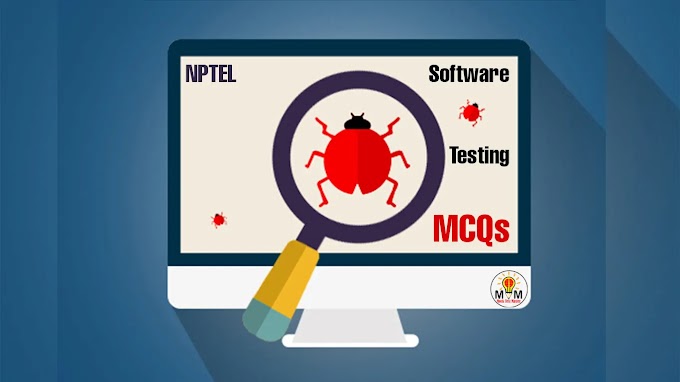Intellectual property rights
(IPRs) are the legal rights that are given to genuine persons over the
creations of their minds. They usually give the creator an exclusive right over
the use of his/her creation for a certain period of time. Companies use IPRs to
protect their inventions, brands, and other creative works. This allows them to
recoup their investment in research and development, and to compete effectively
in the marketplace.
There are a number of IPR courses
offered in India by various universities, institutes, and private
organizations. These courses cover a range of topics, including the basics of
IPR law, patent drafting and prosecution, trademark law, copyright law, and
trade secrets. So professionals and students who are pursuing IPR courses look
for the Intellectual property rights MCQs to pass their exams with good marks. Here
we prepared the intellectual property rights MCQs with answers that cover the
maximum topics of the IPR courses of the institutes. IPR MCQ online test includes more than 100 intellectual property rights MCQs with answers that are very good for practicing the IPR course.
We have created a set of engaging multiple-choice questions (MCQs) to test your knowledge of the IPRs. From copyrights and trademarks to patents and trade secrets, our MCQs cover various aspects of intellectual property laws. It's an excellent opportunity for you to assess your understanding and enhance your knowledge in a fun and interactive way. By practicing with our free online MCQs on IPRs you will not only gain a deeper understanding of intellectual property rights but you will also pass any IPR course with good marks.
IPR courses offered in India
Science, commerce, arts,
technology, etc. in every sector and course IPRs are important so every student
has to study this course in their graduate or post-graduate course and pass the
final exam of the IPR subject. These IPR courses cover a range of topics,
including the basics of IPR law, patent drafting and prosecution, trademark
law, copyright law, and trade secrets. Here we include MCQs on each topic, such
as MCQs on Indian Patent Law 1970, MCQs on Patent, etc. Here are some of the
most popular IPR courses in India:
- Postgraduate Diploma in Intellectual Property Rights Law (PGDIPRL) - National Law School of India University (NLSIU), Bangalore
- Master of Laws in Intellectual Property Rights (LL.M. IPR) - Rajiv Gandhi National Institute of Intellectual Property Management (RGNIPM), Nagpur
- Postgraduate Certificate in Intellectual Property Rights (PGCIPR) - Indian Institute of Technology Delhi (IIT Delhi)
- Certificate Course in Intellectual Property Rights (CCIPR) - Federation of Indian Chambers of Commerce and Industry (FICCI), New Delhi
- Diploma in Intellectual Property Rights (DIPR) - Global Institute of Intellectual Property (GIIP), New Delhi
NPTEL also offers many courses on IPR some of listed below.
Intellectual Property Rights Application in Industry
Here are some examples of how
IPRs are used in industry:
- Patents: Patents are used to protect new inventions, such as new products, processes, and designs. For example, a pharmaceutical company may use a patent to protect its new drug, or a technology company may use a patent to protect its new smartphone design.
- Trademarks: Trademarks are used to protect brands and other distinctive marks that identify the source of goods or services. For example, a car company may use a trademark to protect its logo, or a clothing company may use a trademark to protect its brand name.
- Copyrights: Copyrights are used to protect original works of authorship, such as books, music, movies, and software. For example, a software company may use copyright to protect its computer programs, or a music publisher may use copyright to protect its songs.
- Trade secrets: Trade secrets are any confidential business information that gives a company a competitive advantage. For example, a company may have a trade secret formula for its products or a customer list that is not publicly known.
Here are some specific examples
of how IPRs are used in different industries:
- Pharmaceutical industry: Pharmaceutical companies use patents to protect their new drugs. This allows them to recoup the high cost of drug development and to compete effectively with other pharmaceutical companies.
- Technology industry: Technology companies use patents, trademarks, and copyrights to protect their inventions, brands, and software. This allows them to compete effectively in the highly competitive technology industry.
- Manufacturing industry: Manufacturers use patents and trade secrets to protect their product designs and manufacturing processes. This allows them to maintain a competitive advantage over their competitors.
- Media and entertainment industry: Media and entertainment companies use copyrights and trademarks to protect their creative works, such as movies, music, and books. This allows them to generate revenue from their work and to compete effectively with other media and entertainment companies.
Benefits of IPR MCQ Online Test
- Now you know the importance of IPR in your professional life and industries so by solving these IPR MCQs you can sharpen your knowledge and pass any IPR course with very good marks.
- For quickly reviewing the important key topics and data MCQs on IPRs will be very helpful because it is created in a very interactive manner.
- There are 100 intellectual property rights MCQs with answers that are very good for practicing the IPR course.
Disclaimer: All Intellectual property rights MCQs with answers are prepared with accuracy but we do not claim 100% accuracy so please check the answers yourself also because there is a chance of typing errors.
Intellectual Property Rights MCQs Mock Test
- Intellectual Property Rights MCQs Mock Tests
- Weekly Assignment Wise Quiz Test
- The questions are given in English language only
- You will get 60 seconds to answer each question.
- Know your score when the test is complete
Select the Mock Test
Mock Test Loadig Here
Back to Topics

Mock Test Result
Total Questions:
Answered:
Right Answer:
Wrong Answer:
Percent:
Share with Friends




%20System.webp)

